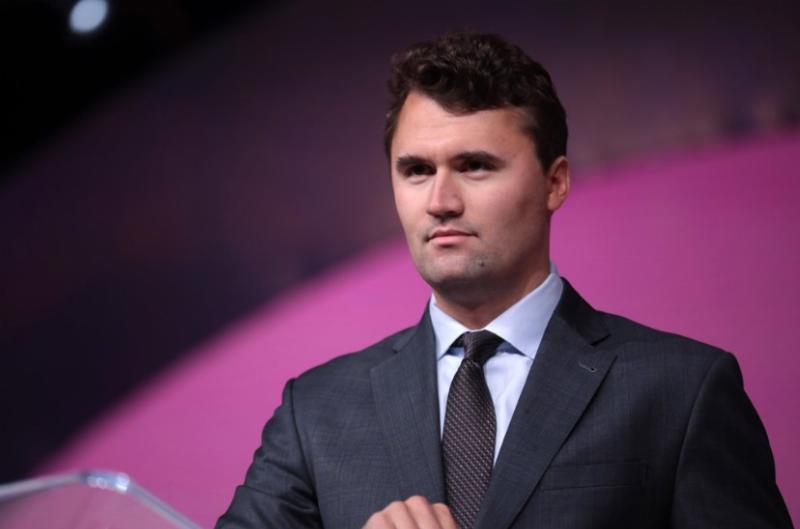


Throughout history, those who dared to expose corruption, evil, and immorality have paid the price. The prophets of the Old Testament and historical figures like Abraham Lincoln, Martin Luther King, and now Charlie Kirk all challenged the established order — peacefully advocating for righteousness, biblical principles, and systemic reform — and provoked violent repercussions.
The pattern is timeless: Power structures cannot tolerate scrutiny that unmasks their decay. It’s irrelevant that the messengers of truth promote nonviolence and moral renewal; the elites lash out to silence them.
The prophets of the Old Testament, the apostles and early Christians illustrate this dynamic. God’s messengers were targeted for revealing divine truths that condemned corrupt leadership and society’s evils. Zechariah, son of Jehoida, was stoned to death on King Joash’s orders for condemning royal idolatry and injustice. Jeremiah faced beatings, imprisonment, and threats for prophesying against Jerusalem’s moral corruption and exposing the leaders’ hypocrisy. These prophets didn’t incite violence; they called for repentance and adherence to God’s law, yet their words threatened the entrenched powers who profited from sin.
John the Baptist rebuked Herod for marrying Herodias, his half-brother’s wife, a union that violated Jewish law. Herodias, enraged by the exposure of her sin, manipulated Herod into beheading him. John’s death illustrates how truth about immorality threatens the elites’ façade of legitimacy, prompting lethal retaliation. When leaders prioritize self-preservation over righteousness, they persecute the innocent to maintain their corrupt order.
Jesus Himself lamented this pattern, foretelling that prophets, wise men, and even His own followers would be killed and crucified for speaking truth. In the New Testament, Stephen, the first Christian martyr, was murdered for boldly proclaiming Christ’s message against religious hypocrisy, and James, brother of John, was executed by King Herod’s sword simply for his faithful witness. These biblical narratives affirm that evil flourishes in darkness and strikes at those who expose it.
The same pattern is reflected in American history, where assassins murder those who unveil evil. John Wilkes Booth’s murder of President Abraham Lincoln stemmed from Booth’s perception that Lincoln’s policies exposed the moral rot of a divided nation and threatened the Southern order. Though Lincoln sought peaceful reconstruction, Booth interpreted his words as an assault on the Constitution and the Southern way of life. Lincoln’s stand against slavery’s immorality provoked fanatical defense of a flawed status quo, much like how today’s conservatives face backlash for defending traditional values.
John F. Kennedy’s assassination can be convincingly linked to his efforts to expose and dismantle corruption within the Deep State, particularly the CIA. JFK pursued peace initiatives that challenged Cold War hawks: secret negotiations with Soviet Premier Nikita Khrushchev for a nuclear test ban and an end to hostilities, and plans to withdraw from Vietnam. After the Bay of Pigs fiasco, JFK fired CIA director Allen Dulles and vowed to “splinter the CIA into a thousand pieces,” confronting the agency’s illegal activities like government overthrows and assassination plots. JFK advocated peaceful diplomacy, not violence, but his revelations threatened the military-industrial complex’s grip on foreign policy. Exposing globalist cabals invites elimination by those invested in conflict.
Martin Luther King, Jr.’s assassination further embodies this theme. His nonviolent crusade against racial and economic immorality alarmed the elites. King’s Montgomery bus boycott, March on Washington, and Selma campaigns dismantled segregation’s injustices, yielding the Civil Rights Act of 1964 and Voting Rights Act of 1965. By 1967, he broadened his critique in the “Beyond Vietnam” speech, decrying the war as immoral and linking it to domestic poverty. MLK’s campaigns provoked the FBI and alienated segregationists and even moderate allies.
King never endorsed violence; he preached love and justice. Yet figures like Alabama governor George Wallace saw his words as disruptive to the racial and economic order. James Earl Ray’s bullet was propelled by the fear of King’s truth-telling. Although we may not agree with all of MLK’s opinions, we can respect his faith-based conservatism. His death is a stark reminder that exposing systemic evil — be it racism or questionable wars — provokes the establishment’s wrath.
This tragic continuum reaches our present day with the killing of Charlie Kirk. Kirk relentlessly exposed the immorality and corruption infecting America’s foundations: the radical left’s promotion of gender ideology in schools, open borders enabling crime and trafficking, and Big Tech’s censorship of free speech. Kirk peacefully advocated for Jewish and Christian values, limited government, and patriotic renewal through speeches, books, and campus events. In so doing, he threatened the left’s grip on education, media, and policy. His assassin believed that Kirk “was full of hate and was spreading hate,” a distorted leftist trope used to demonize conservative critiques of cultural decay. The assassin confessed to a family member his intent to silence Kirk’s voice, just as biblical prophets were accused of blasphemy to justify condemnations.
Kirk’s death, like those before him, stems from words alone. His exposure of evil in the established order — woke indoctrination, election interference, and moral relativism — provoked a fanatic’s response. This assassination warns of the left’s intolerance for truth. There is no lie leftists will not tell, no crime they will not commit to preserve their corrupt hegemony.
Shining the light of truth on their immorality and corruption invariably triggers a response: Eliminate the messenger to safeguard the lie, through censorship, defamation, debanking, swatting, or violence.
We must not be silenced. The world is increasingly hostile to righteousness, and the martyrs who came before us sacrificed everything to provide us with liberty.
Let their sacrifices not be in vain.
<img 52984687066="" a="" alt="
Image: Charlie Kirk. Credit: Gage Skidmore via <a data-cke-saved-href=" by-sa="" captext="<a data-cke-saved-href=" cc="" gage="" gageskidmore="" href="https://creativecommons.org/licenses/by-sa/2.0/deed.en" https:="" p="" photos="" src="https://images.americanthinker.com/um/um7tzzcw07en2ntzspdu_640.jpg" www.flickr.com="" width="100%" height="auto">
Image: Charlie Kirk. Credit: Gage Skidmore via Flickr, CC BY-SA 2.0.
